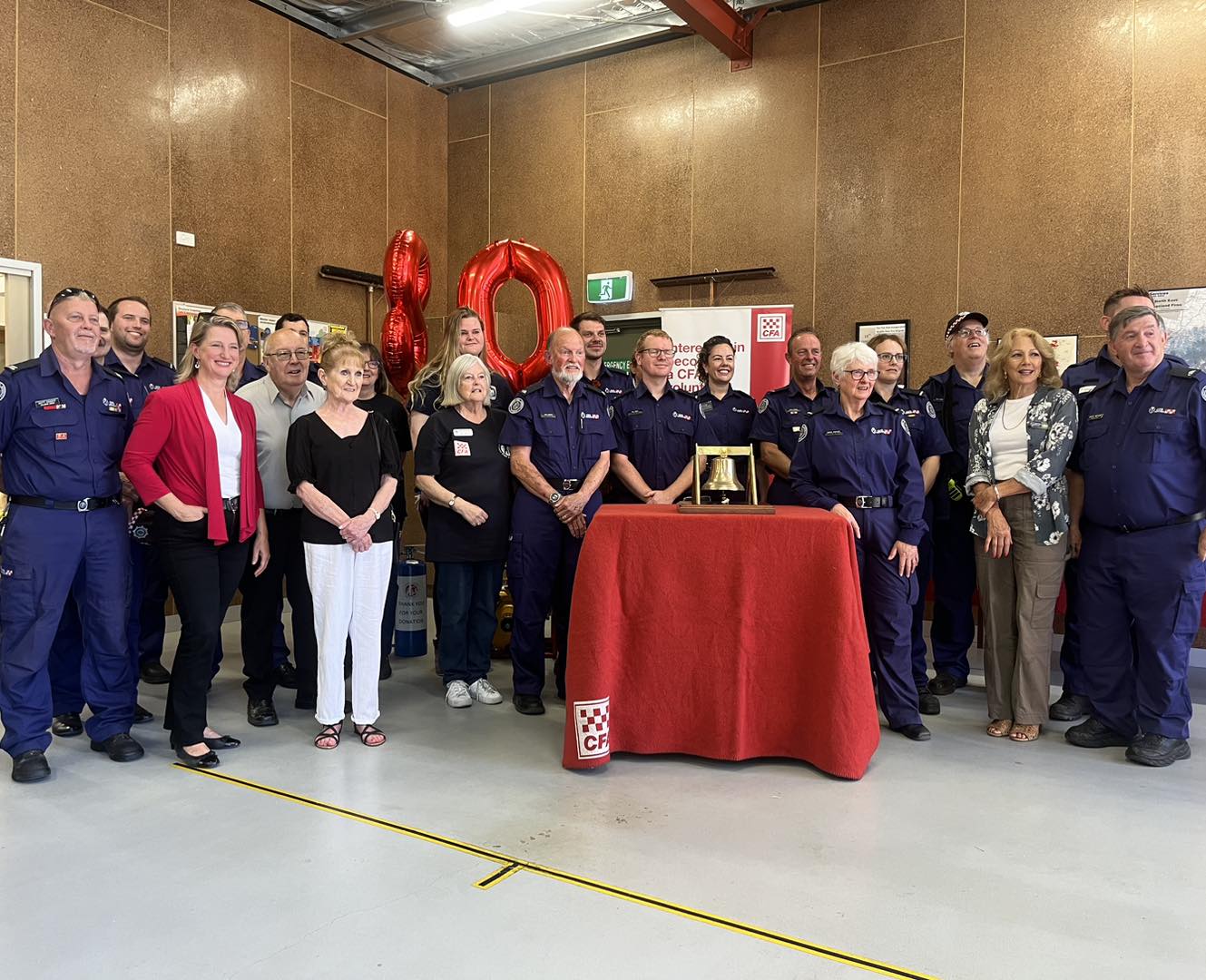 Wattle Glen Fire Brigade members celebrating the anniversary
Wattle Glen Fire Brigade members celebrating the anniversary
For 80 years, Wattle Glen Fire Brigade members have been serving and protecting the community.
Members marked the milestone on Saturday night (16 March) with an open station event, which included a viewing of historical photos volunteers have collected over the years.
Wattle Glen Fire Brigade was formed on 16 March, 1944 following a fire at the local railway station, which burnt through to Research.
At the time Diamond Creek was the only station in the area. After the fire, Wattle Glen and Plenty brigades were created as subbranches of it.
In August 1965, 1st Lieutenant Les Jones became Captain of Wattle Glen Fire Brigade, and the brigade was born, forging its own identity in the community.
"We started off in a tin shed, then a bigger tin shed, then we had a station made out of bricks and finally a station upgrade in 2017, we are very functional and very fortunate," Wattle Glen Captain David Reuter said.
He said the brigade now has about 40 members, with 70 per cent of new recruits' women.
Call-outs volunteers attend include car fires, house fires, grass fires and even quirky jobs like removing stuck fingers from chairs.
There have been 10 captains of the brigade and over 400 members over the years.
David has been captain since 2019, and with CFA since 2014 after swapping baseball for it.
He said it was all about helping the community.
"That's the sort of thing we try and encourage, the ability to be able to support your local community, and further afield as well," he said.
"We were highly involved in the 2009 fires; we had crews down at Mallacoota and East Gippsland in 2019 and 2020 too.
"The brigade doesn't happen without people helping people."
Significant fires the brigade has been involved with over the years include:
1943/44 – Fire started at Wattle Glen Railway station destroying many local properties
1956 – Fire started in St Helena destroying a church and many houses
1983 – Ash Wednesday – Dandenong Ranges and beyond
2009 – Black Saturday – Kinglake, Strathewan, Marysville
2020 – Southern NSW, Eastern Victoria, Mallacoota
2024 – Grampians, Ararat






